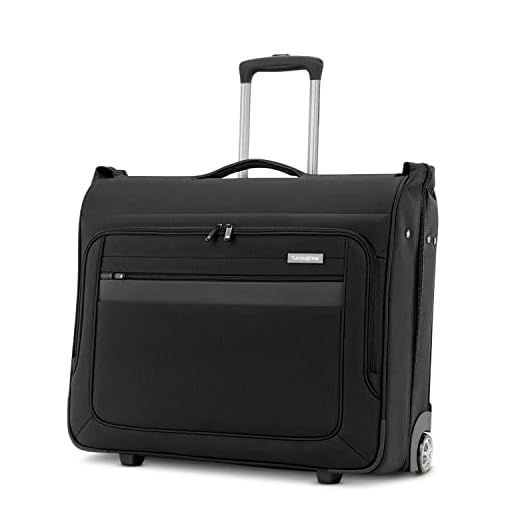



To retrieve your belongings in a Spanish-speaking country, ask for “recoger el equipaje.” This phrase is commonly used at airports and transportation hubs.
For assistance, you can say, “¿Dónde puedo recoger mi equipaje?” which translates to “Where can I pick up my luggage?” This question is especially helpful when unsure of the location of baggage claim areas.
If you need to inquire about your items specifically, use “¿Cuándo estará disponible mi equipaje?” meaning “When will my baggage be available?” This structure keeps your communication clear and direct.
Expressing Luggage Retrieval in Spanish
To request the retrieval of your belongings in Spanish, use the phrase “reclamar el equipaje.” This is a common expression at airports or train stations.
Here are alternative phrases that might be useful:
- “necesito recoger mi equipaje” – I need to pick up my baggage.
- “dónde está la zona de reclamación de equipaje?” – Where is the baggage claim area?
- “tengo que ir a reclamar mi maleta” – I have to go claim my suitcase.
For specific inquiries about damaged or lost items, consider these sentences:
- “mi equipaje no ha llegado” – My baggage has not arrived.
- “hay un problema con mi maleta” – There is an issue with my suitcase.
Utilizing these expressions will facilitate effective communication while traveling in Spanish-speaking regions.
Common Phrases for Retrieving Your Baggage in Spanish
“¿Dónde recojo mi equipaje?” – This means “Where do I collect my bags?” Useful when you’re unsure of the location.
“Tengo una maleta perdida.” – Use this phrase to report a lost suitcase, translating to “I have a missing suitcase.”
“¿Hay un área de recogida de equipaje?” – This inquires, “Is there a baggage claim area?” Perfect for getting directions.
“Mi maleta es de color negro.” – Describe your bag with, “My suitcase is black.” Helpful for identification.
“¿Cuánto tiempo tardará mi equipaje en llegar?” – Asking “How long will my baggage take to arrive?” can clarify wait times.
“Necesito ayuda con mi equipaje.” – If assistance is needed, say, “I need help with my suitcase.”
“¿Podría mostrarme mi recibo de equipaje?” – “Can you show me my baggage receipt?” is critical for retrieval confirmation.
“Estoy aquí para recoger una maleta de___.” – Fill in with the name of the traveler to express, “I am here to collect a suitcase belonging to___.”
“¿Puedo reportar un daño en mi equipaje?” – This means “Can I report damage to my suitcase?” if complications arise.
Understanding Vocabulary Related to Luggage in Spanish
Familiarize yourself with key terms associated with personal belongings during travel. Knowing specific vocabulary enhances communication and makes the travel experience smoother.
Consider these important words: “maleta” refers to suitcase, while “equipaje” is the general term for baggage. “Bolso” indicates a bag, and “carrito de equipaje” is a wheeled cart used to transport multiple items.
Use phrases like “recoger su maleta” to indicate the action of collecting your suitcase at baggage claim. It’s also beneficial to understand expressions used at the airport, such as “dónde está mi equipaje?” which translates to “where is my baggage?”
Exploring related accessories is also useful. For example, the term “etiqueta” means tag, essential for identifying your items. To ensure you have the right gear for business trips, check out the best luggage for business travel from jcpenney.
Integrating these terms into your travel vocabulary will facilitate interactions and reduce stress during your trips.
Contextual Situations: When to Use ‘Get Luggage’
In various environments, situations may arise where retrieving your belongings becomes necessary. At an airport, after checking in, a common phrase used is “recoger su equipaje.” Focus on specific scenarios, such as arriving at a destination, where knowing these expressions becomes invaluable.
At the Baggage Claim
Upon landing, heading straight to the baggage claim area is vital. When collecting your items, it’s common to hear questions like, “¿Dónde puedo recoger mi equipaje?” This allows for effective communication with airport staff.
During Travel Assistance
If seeking help from an attendant, directly asking, “¿Puedo obtener mis maletas aquí?” efficiently conveys your request. Additionally, being informed about local terminology enhances your overall travel experience. Always be prepared to follow up with other inquiries!
For those experiencing discomfort, also explore topics like can red wine cause bloating to understand additional factors that could impact your travels.
Tips for Navigating Luggage Collection in Spanish-Speaking Countries
Arrive prepared with necessary phrases like “¿Dónde puedo recoger mis maletas?” to efficiently locate your bags.
Know the Terminology
Familiarize yourself with terms such as “equipaje” (baggage) and “cinturón de equipaje” (baggage claim belt). Understanding these words enhances your ability to communicate effectively at the airport.
Observe Signage
Airports typically provide clear signage in multiple languages. Look for icons and signs to guide you through the baggage retrieval area. Signs indicating “recogida de equipaje” will direct you to the correct location.
Ask staff if you’re unsure. Using simple questions in Spanish, like “¿Dónde está la zona de recogida de equipaje?” will clarify your destination and ensure you receive assistance promptly.
Keep your baggage claim ticket handy as you will need it to retrieve your items. This ticket contains vital information to verify your identity and match your belongings.
If your baggage does not arrive, report it immediately at the “oficina de objetos perdidos” (lost and found office) using the phrase “No he recibido mi equipaje.” This enables swift tracking and recovery of your items.







